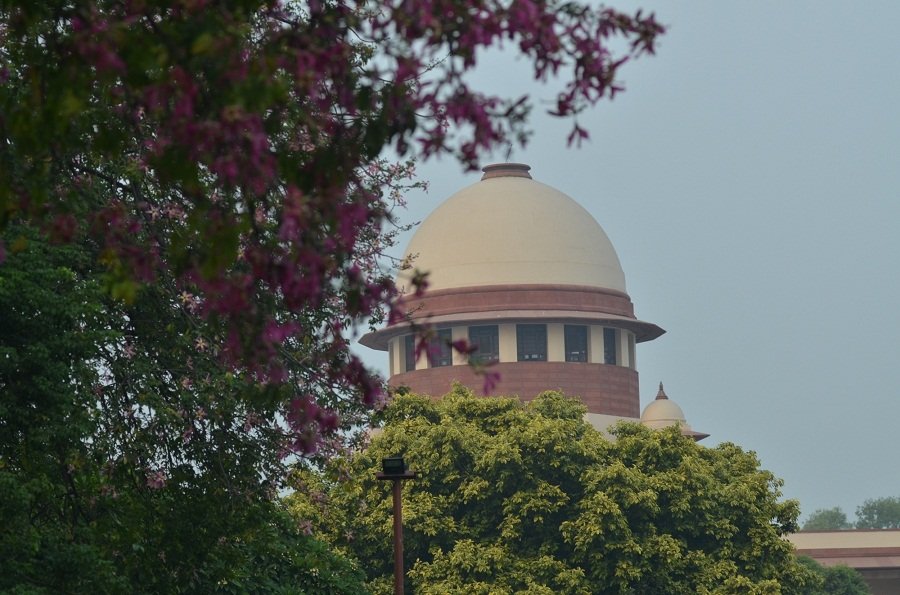
During the hearing, the top court had told Upadhyay’s counsel that the court can grant a hearing in the plea, but the problem is why should Hindu and Muslim communities be brought on par like this
NEW DELHI – The All India Muslim Personal Law Board (AIMPLB) has moved the Supreme Court challenging a plea seeking uniform grounds for divorce for all citizens irrespective of their faith.
The Muslim rights body has sought to intervene into an PIL by advocate Ashwini Kumar Upadhyay, saying that personal laws cannot be tested on the anvil of Articles 14, 15 and 44 of the Constitution.
The impleadment application filed by advocate M.R. Shamshad contends that “custom and usage” in Article 13 of the Constitution does not include faith of a religious denomination embedded in personal law, therefore personal law is excluded. The organisation has sought dismissal of Upadhyay’s PIL, claiming that it is not maintainable.
On December 16 last year, the top court had issued notice on two PILs seeking direction to bring uniformity in matters of divorce and alimony across all religions.
A bench headed by Chief Justice S.A. Bobde had then said that the court is issuing the notice with great caution. During the hearing, the top court had told Upadhyay’s counsel that the court can grant a hearing in the plea, but the problem is why should Hindu and Muslim communities be brought on par like this. The Chief Justice had said, “How will you decide whether to adopt what is in Hinduism, Islam or Christianity?”
Upadhyay had argued that divorce is among the most traumatic misfortunes for men and women, and even after 73 years of Independence, the procedures associated with divorce continue to remain very complex and are neither gender neutral nor religion neutral.
“Hindus, Buddhists, Sikhs and Jains have to seek divorce under the Hindu Marriage Act, 1955. Muslims, Christians and Parsis have their own personal laws. A couple belonging to different religions has to seek divorce under the Special Marriage Act, 1956. If either partner is foreign national then he has to seek divorce under Foreign Marriage Act, 1969,” said Upadhyay’s plea. -IANS

